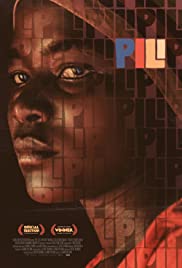
PILI
UK, 2017, 85 minutes, Colour.
Bello Rashid.
Directed by Leanne Welham.
Pili is the name of a woman living in a village in Tanzania. Her husband has left her when he discovered that she was HIV positive. He himself refused to test. She discovered her state when giving birth to her daughter, who is not infected. She also has a son who goes to school.
The film was made by British woman director, bringing great sensitivity to this portrayal of a middle-aged woman, trapped in poverty in her village, ashamed to let people know that she is HIV, scraping a living for her family by working as a farmer in the fields. However, she is also very strong minded, bonding with her friends, rather prickly with those who intrude into her privacy.
The film shows her getting an opportunity to buy a small kiosk in the village. Much of the action shows her trying to raise the money, especially an appeal to a women’s committee in the village, the chair of the committee very strong on laying down the letter of the law and obeying protocols, putting barriers to the loan. Pili struggles, has run out of her medication for HIV, tries to get more, prices having gone up in the village, going to a medical centre at a distance so she will not be recognised, trying to get back to the village for the final meeting about the money approval.
Just when the audience is expecting something of a happy ending, when Pila goes to visit the man who can give her the line since the kiosk and his seem sympathetic, he demands a sexual relationship with her before he gives the license and some compensation in the price.
At the end of the film, Pili is more honest about her state of health, has recovered somewhat, has the kiosk and is now prospering, the audience seeing her selling her goods at her kiosk – while her friend from the fields waves and the camera looks at the woman walking along the highway, the long highway to the farm.
An important contribution to Tanzanian consciousness but also to world consciousness about hardships in life for women in Africa.
1. The title? The focus on Pili? Her age, HIV status, her husband abandoning her, the little daughter, the young son at school, her working in the fields? The possibility for buying the kiosk? Her struggle to get the money?
2. A portrait of an African woman, Tanzania, impact for the African audience, for a worldwide audience and this portrait of a woman in an African village?
3. The visuals of the village, people’s house, the broken door, the interiors, poor? The streets of the village? Meeting places? The long highway to the fields, work in the fields? The visit to clinics, pharmacies, the doctors? Bus travel? The musical score and background?
4. The portrait of Pili, age, health, the broken door, the nosy neighbour and her reactions, her other friends, the importance of the mobile phone and possibilities of the calls and communication, her little boy and going to school, paying for books, the neighbour looking after the little girl? The long walk to the fields, the hard work, her friends, conversation, the kindly man with the food, sharing it with her friend? The prospects of life with work in the fields?
5. The free kiosk, her asking to have the lease, the man and his demands, allowing her to find the money? Her own money, in the house, ordinary expenses? Going to the meeting, some of the women agreeing to the request, the chair of the meeting and her hard line? The votes? The further meetings, her being delayed at the doctors, the bus breaking down, arriving, the final vote, the casting vote?
6. Pili and her children, caring for the little girl, the boy and his feeling that his mother was too much away?
7. Getting the money, going to the owner, his seeming kindness and friendliness, his decision against her? His change, the sexual demands, allowing her some of the deposit?
8. Her acquiescing, the kiosk, seeing her with the sales, her health improved, her clothes? Her prosperity – but the cost?